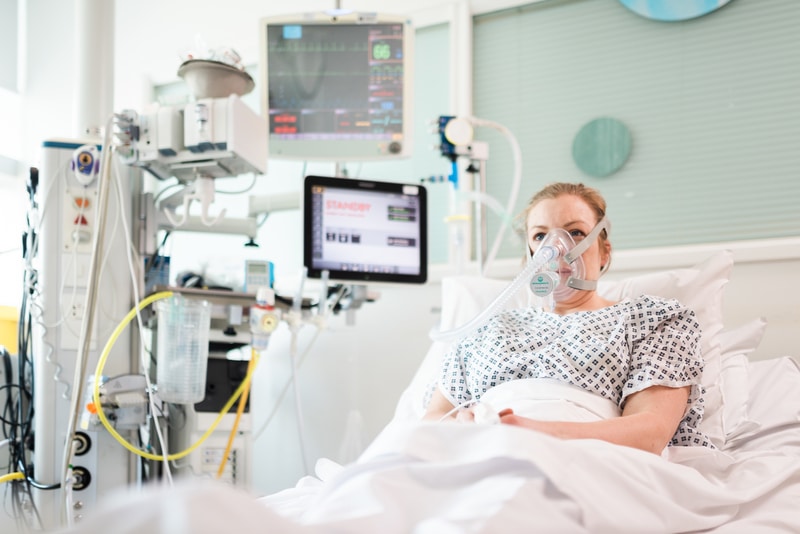The Coronavirus pandemic has presented the world with an opportunity to step up to the plate, and challenged people from across the business world to use their skills and expertise to make a real difference.
None more so has been the high-speed world of Formula 1. While the seven UK-based teams (Mercedes, Renault, McLaren, Haas F1 Team, Williams Racing and Red Bull Racing) are used to developing the fastest machines on planet, the UK government has announced that all seven outfits and their respective technology arms are behind a national effort to manufacture and deliver respiratory devices to help treat coronavirus patients.
The combined efforts of the F1 paddock, dubbed Project Pitlane, are part of an industry-wide Ventilator Challenge UK Consortium, which also includes companies such as BAE Systems, Airbus and Siemens.
A No 10 spokesman said: “The Prime Minister’s call to manufacturers last week had an overwhelming response, with a wide range of UK and international businesses offering to help provide services, including designing and building new devices, manufacturing components or transporting them to NHS hospitals.
“Following this, the government has partnered a number of the UK’s leading technology and engineering firms with smaller manufacturers to rapidly build existing, modified or newly designed ventilators at speed, with seven priority projects underway. They are working to improve the speed at which current UK ventilator manufacturers can produce their devices, with larger companies changing their existing operations to help provide the UK with the equipment and personnel it needs for this effort.
“Government officials are currently working with expert clinicians and health regulators to test all new machine designs, as patient safety is of paramount importance. Any new orders are all dependent on machines passing regulatory tests, but the government, manufacturers and regulators are working at pace to drive this work forward.”
As part of the Ventilator Challenge UK Consortium, Project Pitlane is focussed on rapid design, prototype manufacture of the new device for certification, and subsequent production.
The project’s workstreams will be coordinated by F1’s chief technical officer Pat Symonds.
Ventilator production is due to begin next week by all members of the hastily assembled consortium.
With the 2020 F1 season cancelled until further notice, the focus of all these UK-based F1 teams is to help with the design, manufacture and production of vital NHS equipment to save lives.
Christian Horner, Team Principal of Aston Martin Red Bull racing, said: “The key thing is getting these systems out there as quickly as possible.
“F1’s ability to problem-solve is second to none and our ability to make rapid prototype parts is again second to none.
“So not just our team but all the teams have responded in a phenomenal way. I can only judge what’s going on in our facility, and the efforts that the engineering team and R&D and manufacturing have put into this have been exemplary.”
A statement from McLaren said: “As has been reported in the media, McLaren, in conjunction with other UK-based organisations, is currently evaluating whether it is able to support the production of ventilators as part of the UK government’s request for help.”
A Mercedes-AMG spokesman said: “It [Project Pitlane] will pool the resources and capabilities of its member teams, focusing on the core skills of the F1 industry: rapid design, prototype manufacture, test and skilled assembly. F1’s ability to respond rapidly to engineering and technological challenges allows the group to add value to the wider engineering industry’s response.”
This operation from F1 teams allows the industry to demonstrate its skillset in working fast to achieve targets in order to solve a problem, albeit a different one from on the racetrack.

CPAP Breathing Aids
Not only has the combined power of F1 set about helping to develop life-saving ventilators, but on Monday it was announced that Mercedes-AMG High Performance Powertrains helped to develop a breathing aid in conjunction with mechanical engineers at University College London in less than 100 hours.
The team of engineers worked round the clock at UCL’s engineering hub MechSpace to reverse engineer a device that can now be mass-produced after it has been approved for use by the Medicines and Healthcare Products Regulatory Agency.
Professor Tim Baker (UCL Mechanical Engineering) said: “Given the urgent need, we are thankful that we were able to reduce a process that could take years down to a matter of days.
“From being given the brief, we worked all hours of the day, disassembling and analysing an off-patent device. Using computer simulations, we improved the device further to create a state-of-the-art version suited to mass production.
“We were privileged to be able to call on the capability of Formula One – a collaboration made possible by the close links between UCL Mechanical Engineering and HPP.”
This breathing aid, known as a Continuous Positive Airway Pressure (CPAP) device, has been extensively used in Italian hospitals to help patients with COVID-19 breathe more easily, where it was reported that approximately half of all patients given CPAP have avoided the need for invasive mechanical ventilation.
Andy Cowell, Managing Director of Mercedes-AMG High Performance Powertrains, said: “The Formula One community has shown an impressive response to the call for support, coming together in the ‘Project Pitlane’ collective to support the national need at this time across a number of different projects. We have been proud to put our resources at the service of UCL to deliver the CPAP project to the highest standards and in the fastest possible timeframe.”
One hundred CPAP devices will be used for clinical trials at UCL Hospital before the device is set to be rolled out around the country.
Mercedes have said that they can produce about 1000 breathing aids per day if the device passes clinical trials in response to the anticipated peak of the COVID-19 pandemic in a few weeks’ time.
While to many F1 may seem like cars going round and round in circles, at times like these the combined power of F1 teams can quite literally help to change the world. And with seven F1 teams based in the UK, the collective efforts of the teams located in the UK’s so-called ‘Motorsport Valley’ could prove crucial to our ability to make ground-breaking technology to help manage the surge of the pandemic and save lives.



